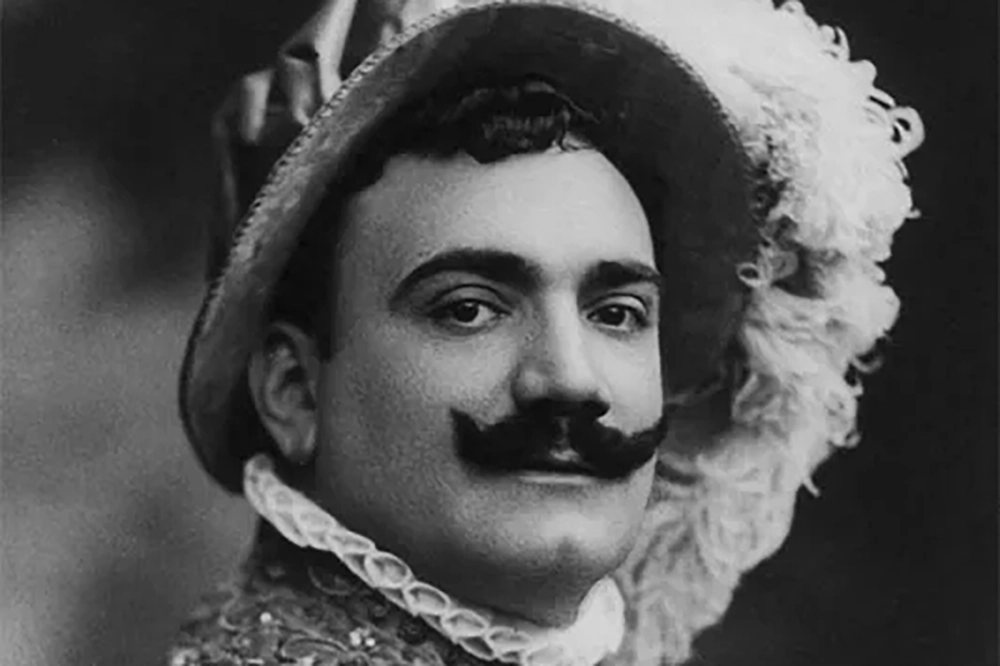Enrico Caruso’s Death – Cause and Date
The opera singer Enrico Caruso shocked the world when he suddenly died at the age of 48.

Caruso was an Italian operatic tenor regarded as one of the greatest tenors throughout history. He released 290 recordings from 1902 to 1920 and was one of the first musicians to document his voice on recordings. The opera singer was awarded a Grammy Lifetime Achievement Award posthumously in 1987.
He married Dorothy Caruso on August 20, 1918, and they had two children.
What was the cause of Enrico Caruso’s death?
Dorothy Caruso observed a swift decline in her husband’s health upon his return from an extensive North American concert tour in the autumn of 1920.
Caruso’s son, Enrico Caruso Jr., attributes in his biography his father’s fatal illness to an on-stage injury. During a performance of Samson and Delilah on December 3, a falling pillar struck his back, specifically over the left kidney, contradicting the widespread belief that it hit his chest.
Nerve pain below the ribs
On December 4, in the days leading up to a performance of Pagliacci at the Met, Caruso experienced a chill accompanied by a cough and a “dull pain in his side.” Caruso’s physician, Philip Horowitz, diagnosed him with “intercostal neuralgia.” Despite the ongoing pain affecting his voice and movements, Horowitz deemed Caruso fit for stage appearances.
Hemorrhage in the mouth
On December 11, 1920, Caruso performed a rendition of Donizetti’s L’elisir d’amore at the Brooklyn Academy of Music. Unfortunately, he had to cancel due to a hemorrhage in his mouth or throat. After this incident, a visibly ailing Caruso participated in only three more Met performances, with his final portrayal as Eléazar in Halévy’s La Juive on December 24, 1920, while grappling with acute pain.
Christmas Day – screaming in distress
As Christmas Day arrived, the agony in his side had escalated to the point where he screamed in distress. Dorothy urgently called for the hotel physician, who administered morphine and codeine to alleviate Caruso’s suffering. Another doctor, Evan M. Evans, was summoned, and with the involvement of three additional doctors, Caruso finally received an accurate diagnosis: purulent pleurisy and empyema.
Operations
As the new year unfolded, Caruso’s health took a turn for the worse. He slipped into a coma and almost succumbed to heart failure. Enduring recurring episodes of intense pain due to infection, he underwent seven surgical procedures to drain fluid from his chest and lungs. In one of the more serious operations, a part of a rib had been removed.
Convalescence in Naples
Caruso’s condition improved gradually, and by May 1921, he had recovered sufficiently to embark on a journey to Naples for further recovery. Dorothy noted his apparent progress, but in July, he consented to an examination by an unhygienic local doctor, marking the onset of a dramatic deterioration in Caruso’s condition.
Death in Naples
The eminent Italian medical practitioners, the Bastianelli brothers, examined him and recommended the removal of his left kidney. On the morning of August 1, Caruso and his entourage departed Sorrento for the Bastianellis’ clinic in Rome. Caruso was running a high fever and gravely ill by the time they reached Naples. They checked into the Hotel Vesuvio, where the opera singer’s screams of pain prompted a doctor to administer morphine to facilitate his sleep.
Caruso passed away the following morning at the hotel shortly after 9:00 a.m. local time on August 2, 1921. He was 48 years old.
The Bastianellis attributed his death to peritonitis – an inflammation of the inner wall of the abdomen. The inflammation was caused by a burst subphrenic abscess, a disease characterized by an accumulation of infected fluid between the diaphragm, liver, and spleen.
Funeral and burial
The King of Italy, Victor Emmanuel III, opened the Royal Basilica of the Church of San Francesco di Paola for Caruso’s funeral, drawing attendance from thousands.
His embalmed body found its place in a glass sarcophagus at Del Pianto Cemetery in Naples, allowing mourners to pay their respects. In 1929, Dorothy Caruso had his coffin covered and permanently sealed in an ornate stone tomb.
Quotes
""I know that I am a singer and an actor, yet in order to give the public the impression that I am neither one nor the other, but the real man conceived by the author, I have to feel and to think as the man the author had in mind."
Enrico Caruso
""It is too bad that the public expects from me, always, perfection which it is impossible for me always to attain. I am not a machine. I am a human being."
Enrico Caruso
""I had always sung, as far back as I can remember, for the pure love of it. My voice was contralto, and I sang in a church in Naples from fourteen till I was eighteen."
Enrico Caruso
""It was he who impressed, time and again, the necessity of singing as nature intended, and - I remember - he constantly warned, don't let the public know that you work. So I went slowly. I never forced the voice."
Enrico Caruso
""To become a singer requires work, work, and again, work! It need not be in any special corner of the earth; there is no one spot that will do more for you than other places. It doesn't matter so much where you are if you have intelligence and a good ear."
Enrico Caruso